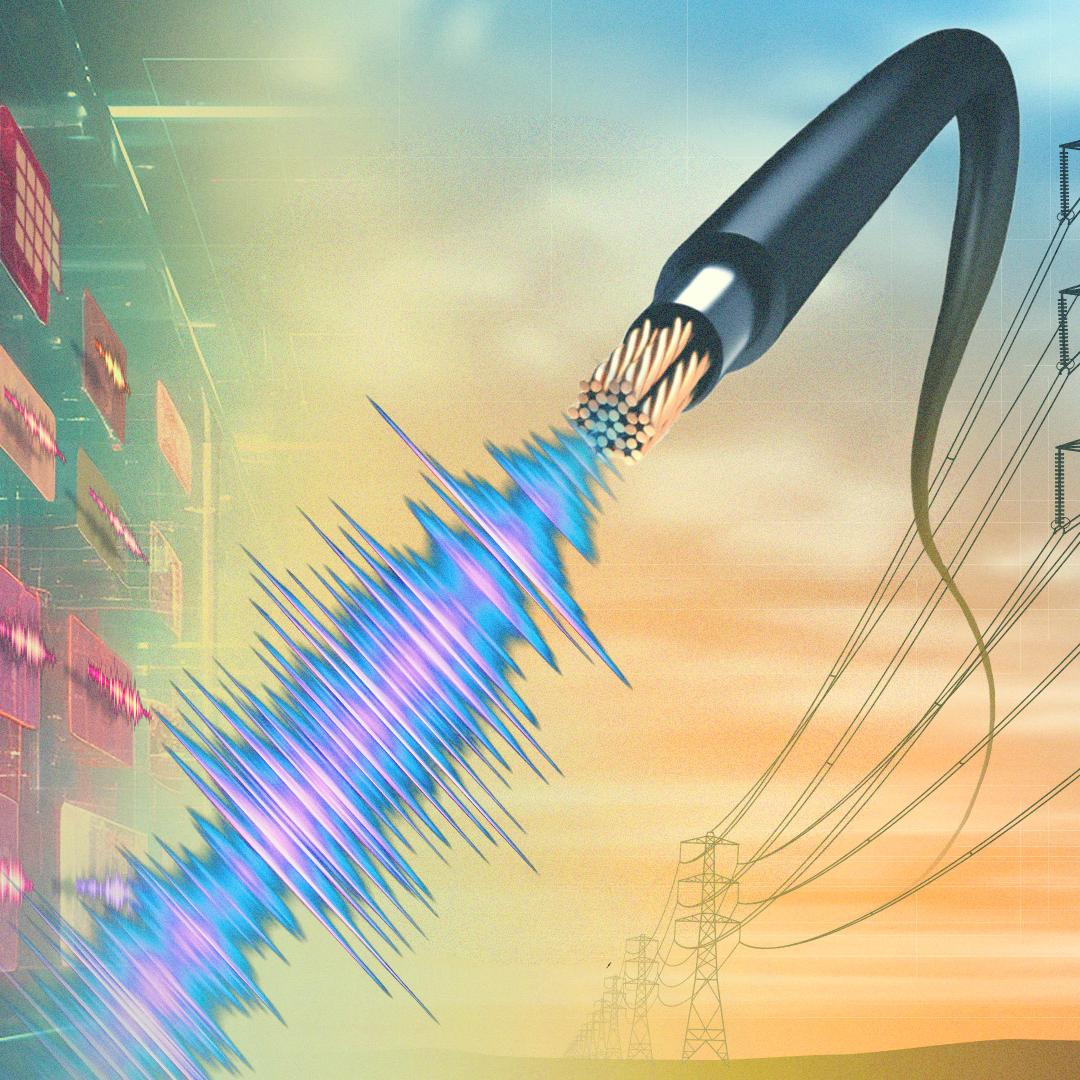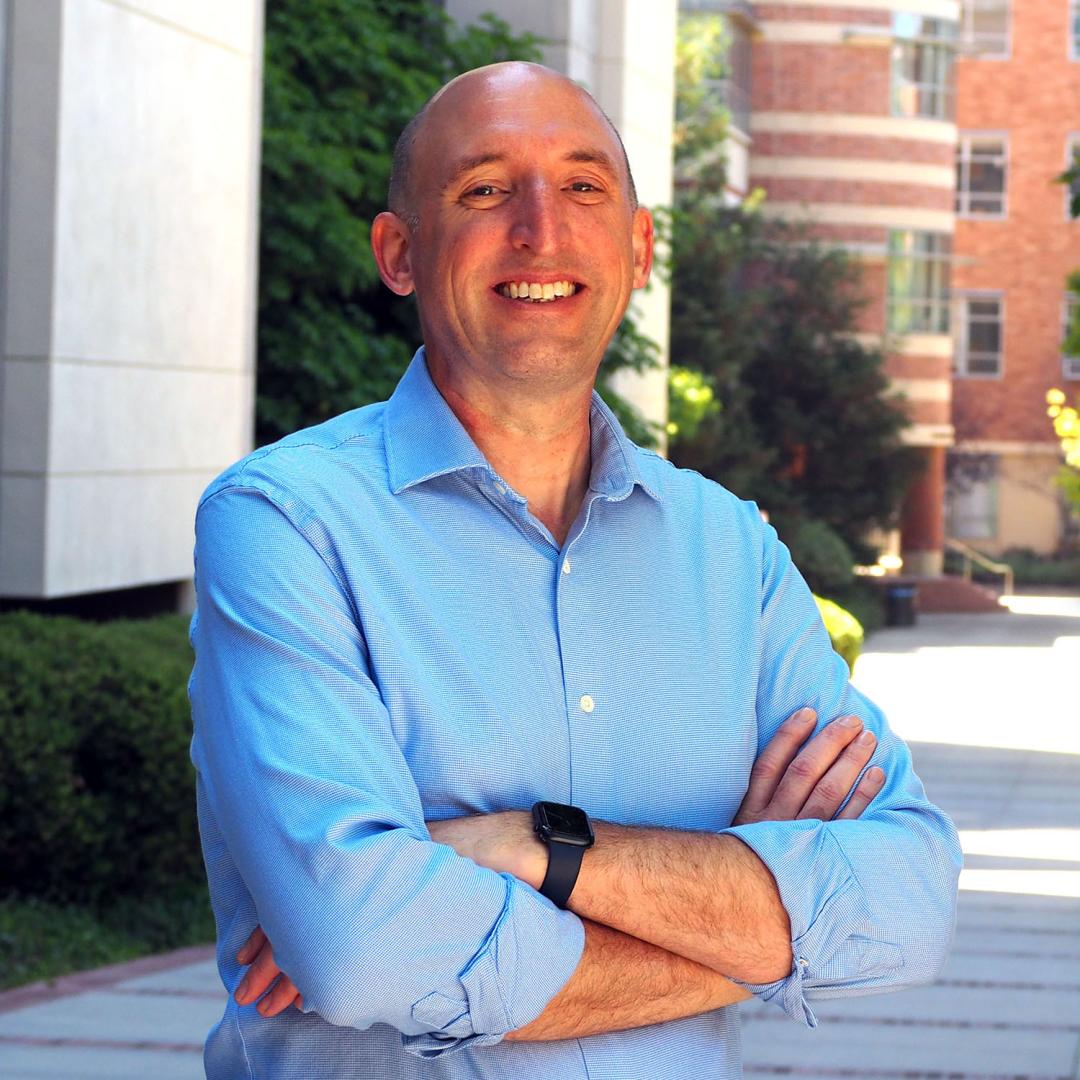
Filter News
Area of Research
News Type
News Topics
- (-) Advanced Reactors (12)
- (-) Biomedical (25)
- (-) Frontier (17)
- (-) Polymers (17)
- (-) Quantum Computing (10)
- (-) Sustainable Energy (43)
- 3-D Printing/Advanced Manufacturing (55)
- Artificial Intelligence (33)
- Big Data (13)
- Bioenergy (40)
- Biology (42)
- Biotechnology (11)
- Buildings (21)
- Chemical Sciences (37)
- Clean Water (7)
- Climate Change (36)
- Composites (11)
- Computer Science (70)
- Coronavirus (23)
- Critical Materials (12)
- Cybersecurity (23)
- Decarbonization (33)
- Education (3)
- Element Discovery (1)
- Energy Storage (55)
- Environment (71)
- Exascale Computing (12)
- Fossil Energy (1)
- Fusion (21)
- Grid (22)
- High-Performance Computing (35)
- Hydropower (2)
- Isotopes (28)
- ITER (3)
- Machine Learning (18)
- Materials (64)
- Materials Science (61)
- Mathematics (4)
- Mercury (6)
- Microelectronics (1)
- Microscopy (25)
- Molten Salt (2)
- Nanotechnology (32)
- National Security (34)
- Net Zero (5)
- Neutron Science (57)
- Nuclear Energy (41)
- Partnerships (27)
- Physics (40)
- Quantum Science (28)
- Renewable Energy (1)
- Security (17)
- Simulation (12)
- Space Exploration (3)
- Statistics (1)
- Summit (22)
- Transformational Challenge Reactor (4)
- Transportation (37)
Media Contacts
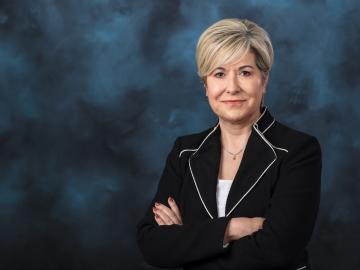
Effective Dec. 4, Gina Tourassi will assume responsibilities as associate laboratory director for the Computing and Computational Sciences Directorate at the Department of Energy’s Oak Ridge National Laboratory.
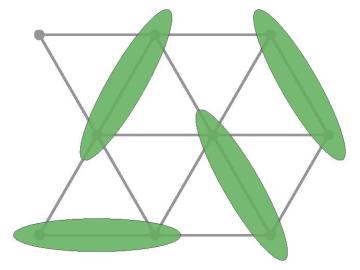
A team of researchers associated with the Quantum Science Center headquartered at the Department of Energy's Oak Ridge National Laboratory has confirmed the presence of quantum spin liquid behavior in a new material with a triangular lattice, KYbSe2.
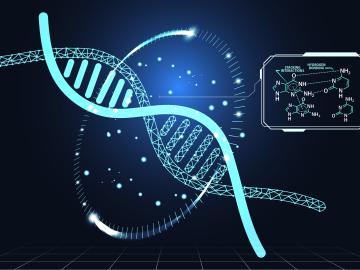
Scientists at ORNL used their expertise in quantum biology, artificial intelligence and bioengineering to improve how CRISPR Cas9 genome editing tools work on organisms like microbes that can be modified to produce renewable fuels and chemicals.
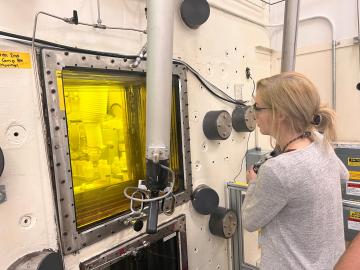
Raina Setzer knows the work she does matters. That’s because she’s already seen it from the other side. Setzer, a radiochemical processing technician in Oak Ridge National Laboratory’s Isotope Processing and Manufacturing Division, joined the lab in June 2023.
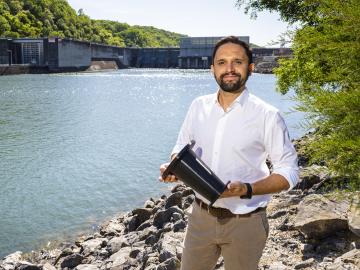
Mirko Musa spent his childhood zigzagging his bike along the Po River. The Po, Italy’s longest river, cuts through a lush valley of grain and vegetable fields, which look like a green and gold ocean spreading out from the river’s banks.
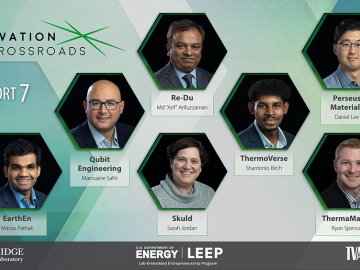
Seven entrepreneurs will embark on a two-year fellowship as the seventh cohort of Innovation Crossroads kicks off this month at ORNL. Representing a range of transformative energy technologies, Cohort 7 is a diverse class of innovators with promising new companies.
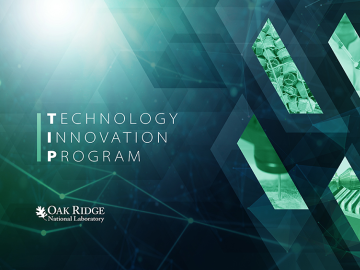
Scientist-inventors from ORNL will present seven new technologies during the Technology Innovation Showcase on Friday, July 14, from 8 a.m.–4 p.m. at the Joint Institute for Computational Sciences on ORNL’s campus.
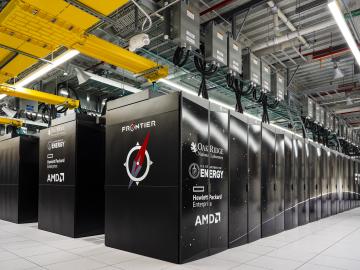
Innovations in artificial intelligence are rapidly shaping our world, from virtual assistants and chatbots to self-driving cars and automated manufacturing.
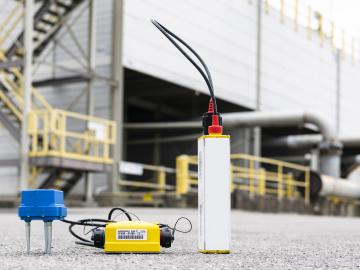
Like most scientists, Chengping Chai is not content with the surface of things: He wants to probe beyond to learn what’s really going on. But in his case, he is literally building a map of the world beneath, using seismic and acoustic data that reveal when and where the earth moves.
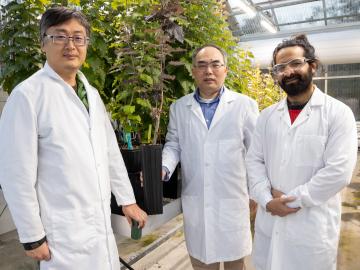
In a discovery aimed at accelerating the development of process-advantaged crops for jet biofuels, scientists at ORNL developed a capability to insert multiple genes into plants in a single step.


